Milky Way
Latest about Milky Way
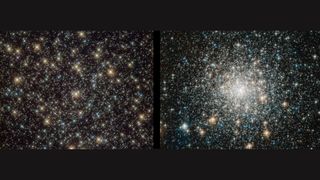
James Webb telescope solves mystery of 'forever young' vampire stars from the dawn of time
By Ivan Farkas published
Astronomers have discovered how "forever young" stars stay blue and bright despite being almost as old as the universe.
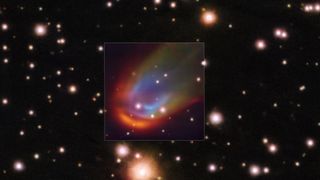
'One of those rare 'wow' moments': Zombie star near Earth has a rainbow shockwave that 'shouldn't be there'
By Harry Baker published
A new study reveals a rare-breaking white dwarf star, dubbed RXJ0528+2838, that is somehow generating a rainbow-like "bow shock" as it zooms through the Milky Way. The cosmic zombie is also ripping apart its partner star like a black hole.
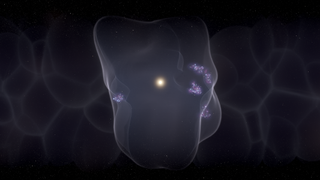
Mysterious, irradiated 'scar' in our galaxy may finally have an explanation
By Sharmila Kuthunur published
Astronomers traced a mysterious 'scar' of ionized gas around the solar system to two stars that had a close flyby with our sun millions of years ago.
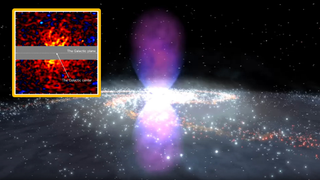
Did a NASA telescope really 'see' dark matter? Strange gamma-rays spark bold claims, but scientists urge caution
By Elizabeth Howell published
A new study says observations from the NASA Fermi space telescope suggest a halo of dark matter around the center of our galaxy, but more information is needed to confirm the result.
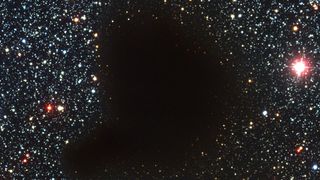
What's the darkest place in the solar system? What about the universe?
By Alice Sun published
Space looks very dark from Earth. But does the solar system, and the universe for that matter, have an area that's the darkest of all?
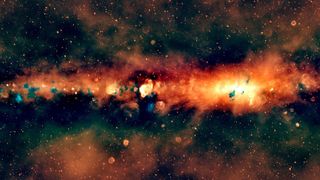
Unprecedented view of the Milky Way took 40,000 hours to construct — Space photo of the week
By Shreejaya Karantha published
Created using data from two extensive surveys, this spectacular radio image of the galactic plane of the Milky Way provides valuable insights into the birth and death of stars.
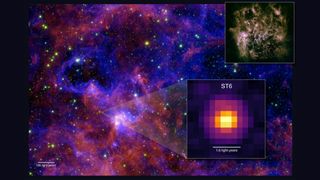
Building blocks of life detected in ice outside the Milky Way for first time ever
By Skyler Ware published
New observations from the James Webb Space Telescope have uncovered five complex organic molecules trapped in the ice around a star outside our galaxy. This cosmic first hints that the stuff of life may be widespread throughout space.
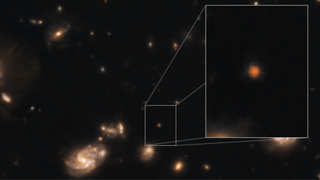
'Puzzling' object discovered by James Webb telescope may be the earliest known galaxy in the universe
By Sophie Berdugo published
While scouring images from the James Webb Space Telescope, astronomers spotted Capotauro, "one of the most puzzling discoveries" to date.
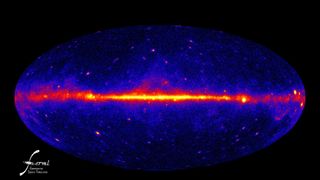
Mysterious glow at the Milky Way's center could reshape a major cosmic theory
By Andrey Feldman published
A mysterious glow at the center of the Milky Way has puzzled astronomers for more than a decade. New research offers an explanation that could also reshape what we know about dark matter.
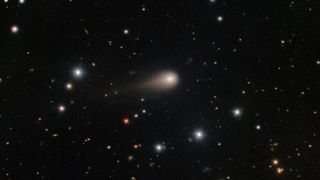
Interstellar comet 3I/ATLAS may come from the mysterious frontier of the early Milky Way, new study hints
By Brandon Specktor published
The interstellar comet 3I/ATLAS does not come from our corner of the Milky Way, and may be a time capsule of the early galaxy, new research into its trajectory hints.
Get the world’s most fascinating discoveries delivered straight to your inbox.
 Live Science Plus
Live Science Plus










